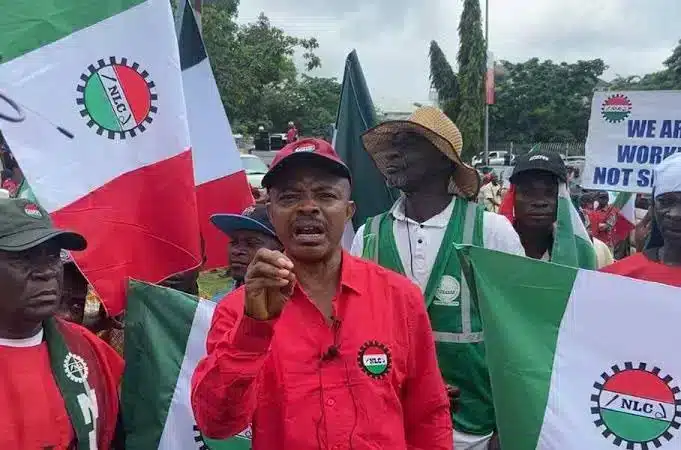The Nigeria Labour Congress (NLC) has criticized the recent hike in fuel prices by the Nigerian National Petroleum Company Limited (NNPCL) and demanded an immediate reversal.
On Tuesday, September 2, Nigerians woke up to a sudden change in the pump price of petrol from ₦568 to as high as ₦897 per liter at the nation’s oil company gas stations.
At other independent oil dealers, prices sometimes shut up to as high as ₦1,200 per liter.
NLC President, Joe Ajaero, accused the government of betraying the labor movement and exacerbating the suffering of Nigerians.
Betrayal Explained
Labor recalled that during its months-long minimum wage negotiation, President Bola Tinubu had asked the union negotiators to choose between a minimum wage of ₦250,000, as they demanded, and a petrol price adjustment to ₦1,500. The Unions opted for the latter.
“But here we are, barely one month after and with the government yet to commence payment of the new national minimum wage, confronted by a reality we cannot explain. It is both traumatic and nightmarish.
“Yet, when we told the government its approach to resolving the fuel subsidy contradictions was patently faulty and would not last, its front-row cheerleaders sneered at us, saying we did not understand basic economics.
“But if truth be told,” Ajaero continued in his tirade against the government, “this act of betrayal is consistent with the character of this government. We recall the assurances we were given by the leadership of the National Assembly on the 250% tariff hike that it had been dealt with and that there was no need to openly engage the Minister of Power at that meeting,” he said.
Ajaero was referring to electricity tariff increase last month.
It demanded ”the immediate reversal of the latest increase in the pump price of PMS across the country.” and went further to ask for “the release of all those incarcerated or being prosecuted on the assumption of having participated in the recent protests and an end to the indiscriminate arrest and detention of citizens on trumped-up charges.”
What Next?
The Labour leader did not clarify what might be their response if the government failed to heed their demands.
The new minimum wage from ₦30,000 per month to ₦70,000 was enacted on July 29 by the president, but most of that gain, even when the government begins to pay, has been eviscerated by declining currency value and mounting energy costs.
Comment, Like 👍, share this article, and Follow us on our social media handles.








